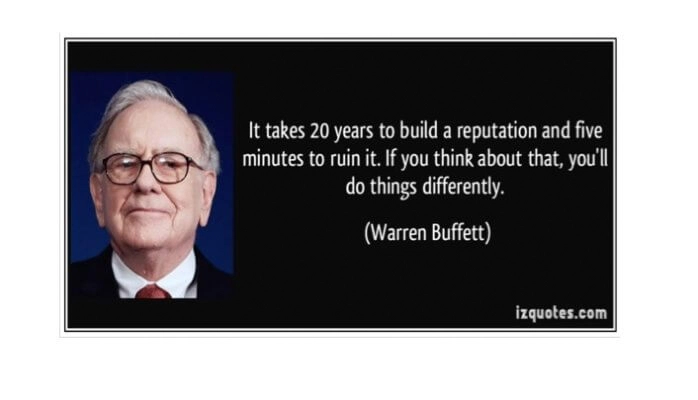Mining companies’ most important asset - reputation

Published: December 15, 2015
Benjamin Franklin
Readers already know that Mine Insider is fascinated with how mining companies create and destroy shareholder value. Mine Insider has documented the ups and recently the significant declines in value at many mining companies (“$400 Billion reasons why mining management must change”) and the scorecard for recent mining company CEOs (“Who is the best performing mining CEO (ever)?”).
Today we are concerned with that most important source of shareholder value: reputation. The Samarco catastrophe (see “Is BHP Billiton the new BP? We compare management of Samarco and the Deepwater Horizon”) is a timely reminder of the importance of reputation.
By reputation we mean the confidence that shareholders have in mining company boards and management teams to identify, measure and properly mitigate for the myriad of risks that are potential in the mining game. Mining is inherently risky. Not only do miners face the normal vicissitudes of the economy and volatility of commodity markets, but they also have the social and physical risks that come with operating heavy equipment with a large geographic footprint in often remote and harsh environments.
So why is a ‘soft’ measure such as reputation important to the Mine Insider, when we generally concern ourselves with hard measures such as costs or cashflows? The reason is that the way company leaders react to unexpected events reveals a great deal about their management capability, in a way that ‘smooth sailing’ does not. The events at Samarco remind us how quickly apparent tight controls can unravel leaving the mining company exposed and its share price vulnerable.
So mining investors have to assess not only the quality of the physical assets and the future direction of inherently volatile markets but also judge the character of the board, the CEO and the management team to protect that most important asset - the reputation of the business. Of course as investors we want management teams that will assess risk, build in a safety margin and still have the courage to act and grow the business.
Assessing the board, CEO and executive team is often very difficult to do given the tightly controlled information released from corporations. For most investors in public companies we must rely on three attributes:
-
Does action match rhetoric? Do the board, CEO and executive team act in the long-term interests of shareholders? Do they have a track record of reliability in making decisions which strengthen shareholder value in the long run?
-
Do they have an authentic voice when explaining the complex trade-offs they must make to protect shareholder value? Do the chairman and CEO (usually the main spokespeople) consistently explain in plain accessible language their thought processes for arriving at their decisions on company strategy?
-
Have they demonstrated their knowledge of the multi-dimensional risks that the business faces and that they have accountability for putting in place the right controls? Will they know how to act when confronted by unpredictable events?
Now the onus is on the investor. Investor beware. The financial statements only reveal so much. We need to look carefully at the actions of company officers. We need to critically read corporate communications for authenticity and consistency, and at every opportunity drill for information on their risk preparedness.
This article was originally published at Mine Insider.



